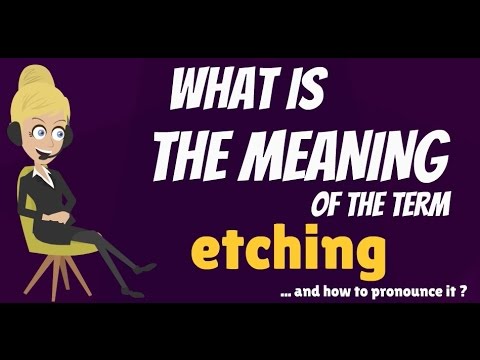Quality Synonyms
premium in Finance
What is the meaning of premium quality?
The definition of premium is something or someone of greater or superior quality. An example of premium used as an adjective is the phrase premium gasoline which means a gasoline with a higher octane rating.An excess is your contribution (to be paid by the policyholder) towards a claim that you make on a car insurance policy or home insurance policy. It implies that you’ll assume a certain amount of risk and pay a part of, say the car repairs or home repair charges when you make a claim. Only after you pay the excess, does the insurer settle the claim.Premium brands are designed to convey an impression of exclusivity or rarity, especially in the mass markets. Targeted customer groups can be high or average income; especially the latter can be premium-aware but on the lookout for bargains. Frequently, companies will invent different (sub)brands to differentiate their product lines into a premium and a general segment (e.g. Toyota with their Lexus and Scion marques). In most ways, the premium segment can be thought of as the contrary or a complement of value brands. The success of a brand is determined by the combination of aforesaid category and the market share.
premium in Insurance

In general, the greater the risk associated, the more expensive the insurance policy. In the case of a life insurance policy, the age at which you begin coverage will determine your premium, along with any other factors such as your current health. The younger you are, the lower your premiums will generally be. Conversely, the older you get, the more you pay in premiums to your insurance company. Premium payments are required to be made to the insurance company for a life insurance policy, otherwise, the policy will lapse.
Related terms of
premium
Increasing the excess is the most effective way of reducing the premium while getting the same coverage. You don’t want to spend out of pocket and disturb your budget while making a claim. Luxury has a psychological association with premium pricing.
Join YourDictionary today
A failure to pay a premium payment when due will cause a life insurance policy to go into the grace period. This is the period of time after a missed premium payment when a policy has not lapsed but will if no payment is made. If no premium payment is remitted to the insurance company during the grace period, a life insurance policy will lapse and must be reinstated to resume coverage, if allowed. Therefore, the premium payment made to the insurance company only covers the cost of insurance for the life insurance policy. The premiums for term life insurance are the lowest amongst all types of insurance policies for this reason.There are many ways that premium payments are structured depending upon the type of life insurance that it is paying towards. Premiums payments can be paid once, last for a few years, be flexible in timing and amount, or be level for the entire lifetime. Call it “Savings element,” “Investment element,” or “Profit element;” you will be right. The premium charged by your life office includes a percentage for investment.Fully 63% of firms report the relative prices of their products to their boards, according to a recent survey conducted in the US, UK, Germany, Japan, and France. Premium refers to a segment of a company’s brands, products, or services that carry tangible or imaginary surplus value in the upper mid- to high price range. The practice is intended to exploit the tendency for buyers to assume that expensive items enjoy an exceptional reputation or represent exceptional quality and distinction. A premium pricing strategy involves setting the price of a product higher than similar products.This strategy is sometimes also called skim pricing because it is an attempt to “skim the cream” off the top of the market. An insurance premium is the amount of money an individual or business pays for an insurance policy. Insurance premiums are paid for policies that cover healthcare, auto, home, life, and others.
What are some opposite words for premium?
- Although there are several useful benchmarks with which a manager can compare a brand’s price, they all attempt to measure the ‘average price’ in the marketplace.
- By comparing a brand’s price with a market average, managers can gain valuable insight into its strength, especially if they view these findings in the context of volume and market share changes.
- Indeed, price premium – also known as relative price – is a commonly used metric among marketers and senior managers.
The implication for marketing is that consumers are willing to pay more for certain goods and not for others. To the marketer, it means creating a brand equity or value for which the consumer is willing to pay extra. Marketers view luxury as the main factor differentiating a brand in a product category. Insurers use premiums to cover liabilities associated with the policies they underwrite.

What does it mean to make a premium?
A premium is a sum of money that you pay regularly to an insurance company for an insurance policy. A premium is a sum of money that you have to pay for something in addition to the normal cost. Even if customers want “solutions,” most are not willing to pay a premium for them.Changes in price premiums can also be signs of product shortages, excess inventories, or other changes in the relationships between supply and demand. In a survey of nearly 200 senior marketing managers, 54 percent responded that they found the “price premium” metric very useful. Establishing a product with a high-priced image takes time, money and the efforts of everyone in the business. The entire marketing program must project high quality, and the consumer must be convinced that the product is worth every penny.
Trends of
premium
State insurance regulators set the number of liquid assets required to ensure insurers can pay claims. When you sign up for an insurance policy, your insurer will charge you a premium. This is the amount you pay for the policy or the total cost of your insurance. Policyholders may choose from a number of options for paying their insurance premiums. Some insurers allow the policyholder to pay the insurance premium in installments—monthly or semi-annually—while others may require an upfront payment in full before coverage starts.
premium
They may also invest the premium to generate higher returns and offset some of the costs of providing the insurance coverage, which can help an insurer keep prices competitive. Insurers invest the premiums in assets with varying levels of liquidity and returns, but they are required to maintain a certain level of liquidity.This portion of the premium is invested by the company and it is from it that bonuses, cash values, policy loans etc are paid to policyholders who buy permanent life policies. Of course, this statement presupposes that investment element is ONLY included in the premiums for policies that are of permanent nature (e.g. endowment and whole life).Irrespective of the type of policy issued, an insurance company will expect to make some profit as a business enterprise. For this reason, the investment aspect of a life assurance premium includes an allowance for the moderate profit of a life office. It is just the same way any manufacturer would include a profit margin in the cost of his product. Price premium, or relative price, is the percentage by which a product’s selling price exceeds (or falls short of) a benchmark price. Marketers need to monitor price premiums as early indicators of competitive pricing strategies.

Although there are several useful benchmarks with which a manager can compare a brand’s price, they all attempt to measure the ‘average price’ in the marketplace. By comparing a brand’s price with a market average, managers can gain valuable insight into its strength, especially if they view these findings in the context of volume and market share changes. Indeed, price premium – also known as relative price – is a commonly used metric among marketers and senior managers.In that sense, the term “premium” replaces the traditional attribute “luxury” although the former can be perceived as less ostentatious. For example, the Affordable Care Act (ACA) allows uninsured consumers to shop around for health insurance policies on the marketplace. Upon logging in, the site requires some basic information such as your name, date of birth, address, and income, along with the personal information of anyone else in your household. You can choose from a number of options available based on your home state—each with different premiums, deductibles, and copays. For example, the likelihood of a claim being made against a teenage driver living in an urban area may be higher compared to a teenage driver in a suburban area.Companies use a premium pricing strategy when they want to charge higher prices than their competitors for their products. The goal is to create the perception that the products must have a higher value than competing products because the prices are higher. The company is betting that the consumer will not investigate to find out if the product is truly a higher-quality item. Marketing managers want consumers to believe that the brand name by itself is enough to assure them that the product is better than the competition’s product.
